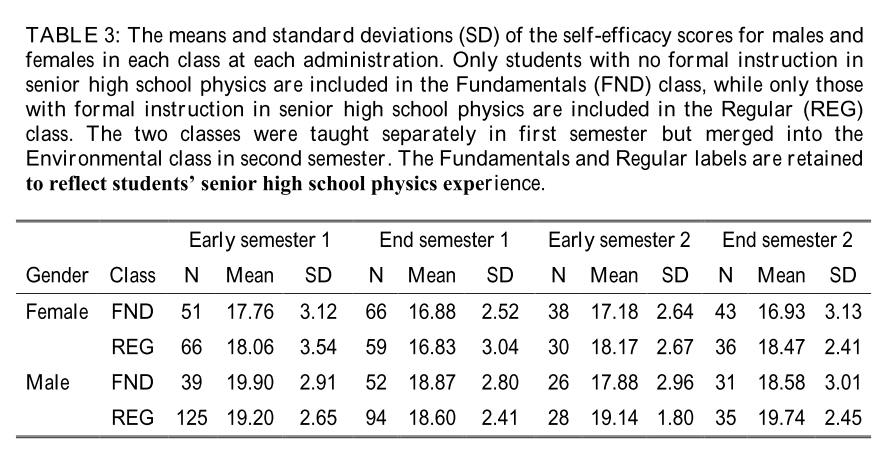Developed by Christine Lindstrøm and Manjula Sharma
| Purpose | To measure students’ self-efficacy in their physics course. |
|---|---|
| Format | Pre/post, Agree/disagree |
| Duration | 5 min |
| Focus | Beliefs / Attitudes (self-efficacy) |
| Level | Intro college |
Sample statements from the PSEQ:
I generally manage to solve difficult physics problems if I try hard enough
Strongly Disagree 1 2 3 4 5 Strongly Agree
I know I can stick to my aims and accomplish my goals in physics
Strongly Disagree 1 2 3 4 5 Strongly Agree
more details
This is the third highest level of research validation, corresponding to at least 3 of the validation categories below.
Research Validation Summary
Based on Research Into:
- Student thinking
Studied Using:
- Student interviews
- Expert review
- Appropriate statistical analysis
Research Conducted:
- At multiple institutions
- By multiple research groups
- Peer-reviewed publication
Most of the Likert-scale questions on the PSEQ are modified versions of questions from the General Self- Efficacy Scale (Schwarzer, 1993), while one PSEQ question was written by the developers. The five questions underwent expert review, and were revised. The PSEQ was then given to over 100 introductory physics students and appropriate analysis of reliability and validity were conducted. Further, an exploratory factor analysis was conducted which found that the five questions on the PSEQ make up one factor, as intended by the developers. A subsequent confirmatory factor analysis to further check the validity and reliability of the PSEQ was conducted with data from over 350 introductory physics students. The PSEQ was then given to introductory physics students four times over a year, and a consistent factor structure was again found. The PSEQ has been given to over 500 introductory physics students at one Australian university, and the results published in one peer-reviewed publication.
References
- C. Lindstrøm and M. Sharma, Self-Efficacy of First Year University Physics Students: Do Gender and Prior Formal Instruction in Physics Matter?, Int. J. Innov. Sci. Math. Educ. 19 (2), 1 (2011).
We don't have any translations of this assessment yet.
If you know of a translation that we don't have yet, or if you would like to translate this assessment, please contact us!
| Typical Results |
|---|
Typical scores on the PSEQ from Lindstrøm and Manjula, 2011: |
The latest version of the PSEQ, released in 2011, is version 1.




